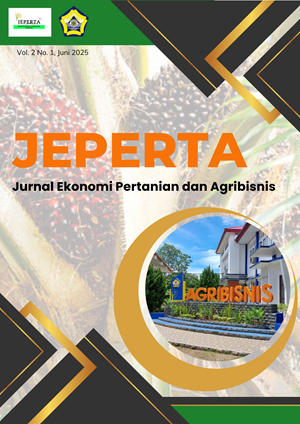Abstract
This study investigates the effect of micro, small, and medium enterprise (MSMEs’) financial performance on the provision of People's Business Credit (KUR) financing by PT. BRI Syariah, Bengkulu Branch Office. The research aims to analyze the financial performance of MSMEs, the amount of KUR disbursed, and how financial performance influences KUR financing decisions. The method employed is a quantitative descriptive approach using multiple linear regression analysis. A purposive sampling technique was used to select 80 MSMEs from a population of 150, with specific criteria such as minimum two years of operation and available 2018 financial statements. The financial performance variables examined include liquidity, solvency, and profitability. The results show that MSMEs have an average current ratio of 172.86% (good), a quick ratio of 151.07% (good), and a cash ratio of 39.94% (poor). Solvency ratios indicate a debt to asset ratio of 2.62% (poor) and debt to equity of 7.07% (good). Profitability ratios such as Net Profit Margin (34.97%), Gross Profit Margin (35.32%), and Return on Equity (28.38%) were classified as very good. The average KUR financing provided was Rp169,500,000 with a 48-month term. Statistical analysis confirms that liquidity, solvency, and profitability significantly influence the amount of KUR financing. It is suggested that financial institutions give higher consideration to MSME financial performance when determining credit eligibility to support sustainable business growth.

